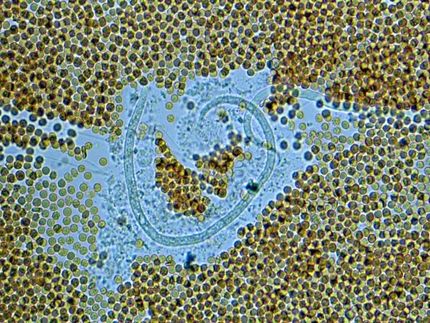Cornell-led team receives $2.5 million to study house finch eye disease that could provide clues to avian flu and AIDS
Cornell researchers leading a multi-institutional team studying an eye disease infecting house finches have received a five-year $2.5 million National Science Foundation (NSF) award to continue their work.
The bacterium Mycoplasma gallisepticum jumped species from chickens to house finches in 1994. Though the pathogen (called a mycoplasma because it is among a group of small, parasitic bacteria that cause diseases) causes a nonfatal respiratory infection in chickens and poses no threat to humans, it causes severe conjunctivitis in house finches, making them less mobile and easier to prey upon. The disease rapidly spread throughout the house finch's eastern range and, more recently, has established itself in the West.
Because the disease bears similarities with avian influenza and AIDS - in that all involve transmission via direct contact, a highly mobile host and zoonosis (where the pathogen jumps species) - the researchers hope these mycoplasma studies shed light on how other diseases spread.
The award follows an earlier grant of almost $2.5 million for research on house finches and M. gallisepticum, headed by André Dhondt, the Edwin H. Morgens Professor of Ornithology in the Department of Ecology and Evolutionary Biology and director of Bird Population Studies at the Cornell Lab of Ornithology. The grants are from the "Ecology of Infectious Diseases Program," a joint NSF, National Institutes of Health and U.S. Geological Survey program designed to study ecology and infectious diseases.
Topics
Organizations
Other news from the department science

Get the life science industry in your inbox
By submitting this form you agree that LUMITOS AG will send you the newsletter(s) selected above by email. Your data will not be passed on to third parties. Your data will be stored and processed in accordance with our data protection regulations. LUMITOS may contact you by email for the purpose of advertising or market and opinion surveys. You can revoke your consent at any time without giving reasons to LUMITOS AG, Ernst-Augustin-Str. 2, 12489 Berlin, Germany or by e-mail at revoke@lumitos.com with effect for the future. In addition, each email contains a link to unsubscribe from the corresponding newsletter.





















































